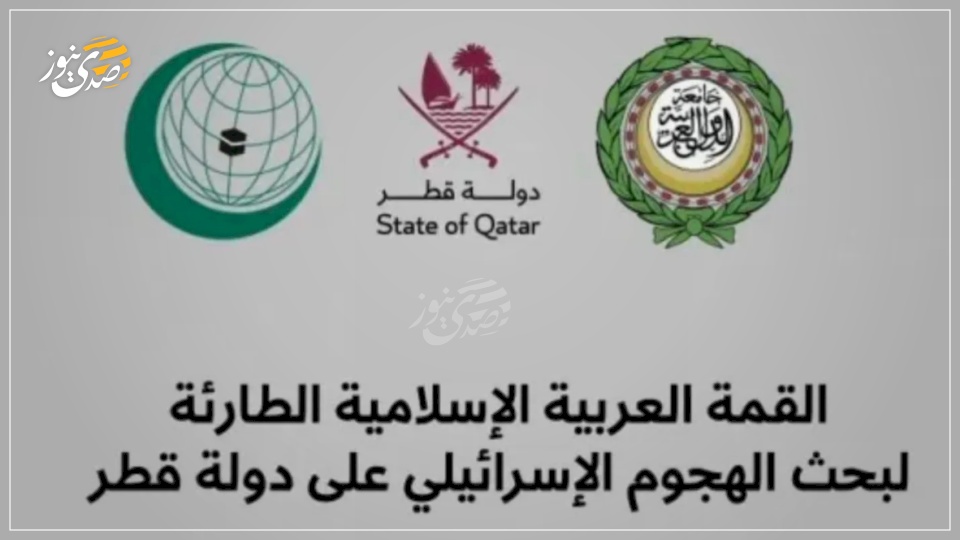
Doha Summit: A "Timid" Statement in the Face of Brazen Aggression.. Where are the Arab Pressure Points?
Exclusive to SadaNews: As part of the preparations for the urgent Arab Islamic summit held in Doha, which is addressing the Israeli aggression against the State of Qatar, the Arab foreign ministers have prepared a draft final statement to be presented to the Arab leaders at today’s meeting, which apparently will enjoy near-complete consensus. According to SadaNews, the content of the draft indicates reactions described as "timid", failing to reflect the extent of the blatant Israeli violation of the sovereignty of an Arab state, which could provoke a sense of discontent in political and public circles, especially in light of hopes that had relied on a more stringent position, such as halting the Gulf normalization process with Israel.
For its part, diplomatic sources informed SadaNews that the United States participated alongside the State of Qatar in drafting and preparing the final statement of the summit, as part of a joint coordination that reflects the level of American involvement in the summit discussions.
The statement, which includes twenty resolutions - subject to modification before being officially adopted - focuses on condemning the brutal Israeli aggression and reaffirms absolute solidarity with Qatar, firmly rejecting Israeli threats of potential future targeting. It also stresses the necessity of halting attempts to impose a new reality in the region and condemns any Israeli efforts to displace Palestinians, along with warnings regarding the war on Gaza, the starvation of civilians, and the danger of annexing the West Bank.
Despite these statements, observers and diplomats in contact with SadaNews believe that the statement has not gone beyond condemnation and denunciation, without taking practical steps that could inflict pain on Israel or deter it. They point out that Arab countries possess real pressure points that could lead to changes within Israel, most notably withdrawing ambassadors and halting normalization, which Israel considers a strategic threat to its project in the region, especially after the previous Trump administration viewed it as one of its top achievements.
Observers add that Arab response options should not be limited to diplomacy, but also include severing economic, trade, and cultural relations with Tel Aviv, imposing a comprehensive boycott on Israel and companies that deal with it, closing crossings to ships heading towards it, and freezing economic agreements made with it.
There was also a suggestion to pressure Israel's allies, primarily the United States, along with activating the Arab and Islamic joint defense system as a strategic step to deter any future aggression.
Diplomats informed "SadaNews" that it is unrealistic to raise expectations regarding the responses of Arab and Islamic countries to the shelling of Doha, given the current regional context. In addition to the mass atrocities committed by Israel in the Gaza Strip over the past two years, which resulted in approximately 65,000 martyrs, and the policy of ethnic cleansing in the West Bank, Israel is conducting daily attacks on Lebanon, Syria, and Yemen, which are Arab and Islamic countries, without seeing any real movement or decisive actions from Arab countries. Consequently, observers question: What leads us to expect a firm stance now regarding the shelling of Doha, when previous stances have not matched the significance of past events?

High-level sources reveal to SadaNews: Washington seeks to hold a Gaza Reconstruction Conf...

US Ambassador to Israel Thwarted Messages Warning of a 'Catastrophic Wasteland' in Gaza

Yedioth Ahronoth: The Disarmament Operation of Hamas and Factions Begins Next March

Hebrew Channel: Advanced Preparations for the Green City in Rafah Funded by the UAE

Sources for SadaNews: Arrangements for a visit by a technocrat committee delegation to Gaz...

Permanent Intelligence Presence: Washington's Plan for Venezuela After Maduro

Reports: Investigations Revealed in a Security Case Related to Smuggling Goods from Israel...

